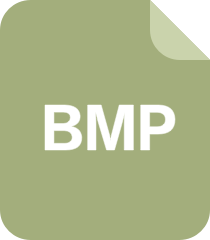标题 "手把手教你使用esp8266制作桌面时钟" 涉及到的核心知识点是使用ESP8266微控制器与0.96英寸OLED显示屏来创建一个NTP(网络时间协议)桌面时钟。这个项目是物联网和智能家居领域的一个简单应用,适合初学者或对编程有一定兴趣的人士。 1. **ESP8266**:ESP8266是一款低成本、高性能的Wi-Fi微控制器,常用于物联网设备开发。它集成了TCP/IP协议栈,可以轻松连接到WiFi网络,进行数据传输和远程控制。 2. **0.96英寸OLED显示屏**:OLED(有机发光二极管)屏幕是一种自发光显示技术,相比LCD更节能且视角宽广。0.96英寸大小的OLED适用于小型电子项目,如智能家居设备的用户界面,它能清晰地展示时间和其他信息。 3. **NTP**:网络时间协议是互联网上的标准同步协议,用于使计算机时间保持准确。在本项目中,ESP8266通过NTP获取网络上的标准时间,确保时钟显示的准确性。 4. **Arduino IDE**:`arduino-1.8.13-windows.exe` 是Arduino集成开发环境的安装程序,用于编写和上传代码到ESP8266。ESP8266可以通过Arduino IDE进行编程,因为它们有兼容的固件。 5. **8266_package_2.7.4.exe**:这是ESP8266的Arduino库包,包含用于在Arduino IDE中支持ESP8266开发的必要文件。安装后,IDE将能够识别并编程ESP8266板。 6. **CP2102版驱动**:CP2102是一种常用的USB转串口芯片,用于连接ESP8266到电脑进行编程。驱动程序确保电脑能正确识别并通信。 7. **代码.txt**:这个文件包含了实现项目功能的源代码,可能包括设置网络连接、初始化OLED显示、获取NTP时间并更新显示等关键部分。 8. **libraries**:库文件可能包含了一些用于操作OLED屏幕、处理网络连接以及时间显示等功能的预编译代码模块,方便开发者快速集成到自己的项目中。 对于零基础的初学者,这个教程会提供详细的步骤和指导,帮助他们理解如何设置开发环境,安装必要的软件和硬件,编写和上传代码,以及调试设备。通过这个项目,学习者不仅可以掌握ESP8266的基础用法,还能了解物联网设备的基本工作原理,为进一步探索智能家居和其他物联网应用打下基础。
 手把手教你使用esp8266制作桌面时钟 (1403个子文件)
手把手教你使用esp8266制作桌面时钟 (1403个子文件)  README.adoc 1KB
README.adoc 1KB README.adoc 1KB
README.adoc 1KB README.adoc 1KB
README.adoc 1KB README.adoc 1KB
README.adoc 1KB README.adoc 1KB
README.adoc 1KB README.adoc 1KB
README.adoc 1KB README.adoc 1KB
README.adoc 1KB README.adoc 1KB
README.adoc 1KB README.adoc 1KB
README.adoc 1KB README.adoc 1009B
README.adoc 1009B README.adoc 1005B
README.adoc 1005B README.adoc 993B
README.adoc 993B README.adoc 868B
README.adoc 868B AUTHORS 166B
AUTHORS 166B arduino.bmp 7KB
arduino.bmp 7KB arduino.bmp 7KB
arduino.bmp 7KB u8g2_fonts.c 24.96MB
u8g2_fonts.c 24.96MB u8x8_fonts.c 1.52MB
u8x8_fonts.c 1.52MB u8g2_d_setup.c 233KB
u8g2_d_setup.c 233KB u8x8_d_st75256.c 57KB
u8x8_d_st75256.c 57KB u8x8_d_st7565.c 45KB
u8x8_d_st7565.c 45KB u8g2_font.c 32KB
u8g2_font.c 32KB u8x8_d_st7567.c 23KB
u8x8_d_st7567.c 23KB u8x8_d_ssd1327.c 23KB
u8x8_d_ssd1327.c 23KB u8x8_d_uc1611.c 22KB
u8x8_d_uc1611.c 22KB u8x8_d_ssd1607_200x200.c 21KB
u8x8_d_ssd1607_200x200.c 21KB u8x8_cad.c 21KB
u8x8_cad.c 21KB u8x8_d_t6963.c 19KB
u8x8_d_t6963.c 19KB u8x8_d_sh1107.c 18KB
u8x8_d_sh1107.c 18KB u8x8_d_ssd1306_128x64_noname.c 18KB
u8x8_d_ssd1306_128x64_noname.c 18KB u8x8_byte.c 17KB
u8x8_byte.c 17KB u8x8_d_ssd1322.c 17KB
u8x8_d_ssd1322.c 17KB u8x8_d_il3820_296x128.c 17KB
u8x8_d_il3820_296x128.c 17KB u8x8_d_ssd1325.c 16KB
u8x8_d_ssd1325.c 16KB u8x8_d_lc7981.c 16KB
u8x8_d_lc7981.c 16KB u8x8_d_max7219.c 14KB
u8x8_d_max7219.c 14KB u8x8_d_uc1608.c 14KB
u8x8_d_uc1608.c 14KB tcp_axtls.c 14KB
tcp_axtls.c 14KB u8x8_d_ssd1305.c 14KB
u8x8_d_ssd1305.c 14KB u8g2_d_memory.c 13KB
u8g2_d_memory.c 13KB u8x8_d_ssd1606_172x72.c 13KB
u8x8_d_ssd1606_172x72.c 13KB u8x8_d_sed1330.c 13KB
u8x8_d_sed1330.c 13KB u8x8_8x8.c 12KB
u8x8_8x8.c 12KB u8x8_d_ks0108.c 11KB
u8x8_d_ks0108.c 11KB u8x8_d_ssd1318.c 11KB
u8x8_d_ssd1318.c 11KB u8g2_setup.c 11KB
u8g2_setup.c 11KB TembooWebSocketRequestHandles.c 11KB
TembooWebSocketRequestHandles.c 11KB u8g2_circle.c 10KB
u8g2_circle.c 10KB MQTTPacket.c 10KB
MQTTPacket.c 10KB fontconvert.c 10KB
fontconvert.c 10KB u8x8_d_ld7032_60x32.c 10KB
u8x8_d_ld7032_60x32.c 10KB u8x8_d_ssd1309.c 10KB
u8x8_d_ssd1309.c 10KB u8x8_d_ssd1306_64x32.c 10KB
u8x8_d_ssd1306_64x32.c 10KB u8x8_d_ssd1329.c 10KB
u8x8_d_ssd1329.c 10KB u8x8_d_ssd1306_128x32.c 9KB
u8x8_d_ssd1306_128x32.c 9KB u8x8_d_ssd1326.c 9KB
u8x8_d_ssd1326.c 9KB u8x8_d_st75320.c 9KB
u8x8_d_st75320.c 9KB u8x8_d_st7586s_erc240160.c 9KB
u8x8_d_st7586s_erc240160.c 9KB u8x8_d_uc1610.c 9KB
u8x8_d_uc1610.c 9KB u8g2_ll_hvline.c 9KB
u8g2_ll_hvline.c 9KB u8x8_d_sh1122.c 9KB
u8x8_d_sh1122.c 9KB u8x8_d_st7586s_s028hn118a.c 9KB
u8x8_d_st7586s_s028hn118a.c 9KB u8x8_d_st7920.c 8KB
u8x8_d_st7920.c 8KB glcdfont.c 8KB
glcdfont.c 8KB u8x8_d_ssd1317.c 8KB
u8x8_d_ssd1317.c 8KB glcdfont.c 8KB
glcdfont.c 8KB u8x8_d_sh1106_72x40.c 8KB
u8x8_d_sh1106_72x40.c 8KB u8x8_d_sh1106_64x32.c 8KB
u8x8_d_sh1106_64x32.c 8KB u8x8_d_st7588.c 8KB
u8x8_d_st7588.c 8KB glcdfont.c 8KB
glcdfont.c 8KB u8x8_d_ssd1316.c 8KB
u8x8_d_ssd1316.c 8KB MQTTFormat.c 8KB
MQTTFormat.c 8KB u8x8_d_uc1604.c 8KB
u8x8_d_uc1604.c 8KB u8x8_d_ssd1306_64x48.c 8KB
u8x8_d_ssd1306_64x48.c 8KB u8x8_d_ssd1306_96x16.c 8KB
u8x8_d_ssd1306_96x16.c 8KB u8x8_d_sh1108.c 8KB
u8x8_d_sh1108.c 8KB u8x8_d_ssd1306_48x64.c 8KB
u8x8_d_ssd1306_48x64.c 8KB u8x8_d_uc1617.c 8KB
u8x8_d_uc1617.c 8KB u8g2_selection_list.c 7KB
u8g2_selection_list.c 7KB u8x8_d_uc1638.c 7KB
u8x8_d_uc1638.c 7KB u8x8_d_uc1701_dogs102.c 7KB
u8x8_d_uc1701_dogs102.c 7KB u8x8_d_uc1701_mini12864.c 7KB
u8x8_d_uc1701_mini12864.c 7KB u8x8_d_ist3020.c 7KB
u8x8_d_ist3020.c 7KB u8x8_d_st7511.c 7KB
u8x8_d_st7511.c 7KB u8g2_polygon.c 7KB
u8g2_polygon.c 7KB u8g2_hvline.c 7KB
u8g2_hvline.c 7KB u8x8_d_sbn1661.c 7KB
u8x8_d_sbn1661.c 7KB u8x8_d_uc1601.c 7KB
u8x8_d_uc1601.c 7KB u8x8_d_ls013b7dh03.c 7KB
u8x8_d_ls013b7dh03.c 7KB u8x8_d_pcf8814_hx1230.c 7KB
u8x8_d_pcf8814_hx1230.c 7KB libsha1.c 7KB
libsha1.c 7KB u8x8_d_pcf8812.c 6KB
u8x8_d_pcf8812.c 6KB u8log.c 6KB
u8log.c 6KB u8x8_d_a2printer.c 6KB
u8x8_d_a2printer.c 6KB MQTTConnectClient.c 6KB
MQTTConnectClient.c 6KB u8x8_d_pcd8544_84x48.c 6KB
u8x8_d_pcd8544_84x48.c 6KB u8x8_debounce.c 5KB
u8x8_debounce.c 5KB u8g2_message.c 5KB
u8g2_message.c 5KB u8g2_bitmap.c 5KB
u8g2_bitmap.c 5KB u8g2_buffer.c 5KB
u8g2_buffer.c 5KB- 1
- 2
- 3
- 4
- 5
- 6
- 15

- 粉丝: 15
- 资源: 1
 我的内容管理
展开
我的内容管理
展开
 我的资源
快来上传第一个资源
我的资源
快来上传第一个资源
 我的收益 登录查看自己的收益
我的收益 登录查看自己的收益 我的积分
登录查看自己的积分
我的积分
登录查看自己的积分
 我的C币
登录后查看C币余额
我的C币
登录后查看C币余额
 我的收藏
我的收藏  我的下载
我的下载  下载帮助
下载帮助

 前往需求广场,查看用户热搜
前往需求广场,查看用户热搜最新资源
- 阿里云OSS Java版SDK.zip
- 阿里云api网关请求签名示例(java实现).zip
- 通过示例学习 Android 的 RxJava.zip
- 通过多线程编程在 Java 中发现并发模式和特性 线程、锁、原子等等 .zip
- 通过在终端中进行探索来学习 JavaScript .zip
- 通过不仅针对初学者而且针对 JavaScript 爱好者(无论他们的专业水平如何)设计的编码挑战,自然而自信地拥抱 JavaScript .zip
- 适用于 Kotlin 和 Java 的现代 JSON 库 .zip
- yolo5实战-yolo资源
- english-chinese-dictionary-数据结构课程设计
- mp-mysql-injector-spring-boot-starter-sql注入


 信息提交成功
信息提交成功